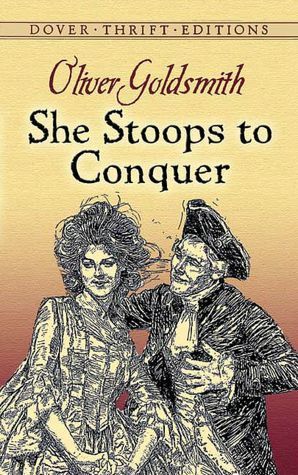ACT THE FIRST.
by“Act the First” begins with a clash of values, setting the tone for a story built on contrasts, deception, and social satire. Mrs. Hardcastle complains bitterly about life in the countryside, longing for the style and liveliness of London, which she believes is essential for refinement and sophistication. Her husband, Mr. Hardcastle, disagrees entirely, preferring the quiet dignity of tradition and rural life. The difference in their perspectives frames their marriage as one of opposing tastes, which adds to the light domestic tension. Their playful disagreement also reveals how each parent sees their child—Tony Lumpkin—as either a lovable rogue or a failed scholar. Mr. Hardcastle is disappointed in Tony’s aversion to education and respectable behavior, while Mrs. Hardcastle, blinded by affection, defends his antics and calls his laziness an unfortunate quirk. This exchange lays the groundwork for Tony’s role as a comic disruptor throughout the play.
As the household discusses future plans, Mr. Hardcastle brings up his intention to see his daughter married to a respectable young man named Marlow. Miss Hardcastle reacts with a mix of duty and curiosity, initially skeptical about marrying a stranger. However, her mood shifts when she hears about Marlow’s admirable reputation. Still, she hesitates upon learning that Marlow is painfully reserved in front of upper-class women, a detail that puzzles and intrigues her. Instead of rejecting the idea, she becomes interested in understanding him beyond appearances. Her reaction reveals both wit and emotional depth, marking her as more than a passive participant in her father’s plans. This layered response also foreshadows her future role in driving the plot forward through intelligence and strategy rather than mere obedience. Her cousin, Miss Neville, also adds complexity to the romantic thread, being herself entangled in a different scheme.
Meanwhile, Tony Lumpkin’s entrance provides a sharp turn in tone, delivering a burst of comic energy and mischief. He’s found drinking with common folk in a nearby alehouse, clearly preferring crude humor and informal company over the manners his mother wants him to learn. His rejection of refinement is not just rebellion but a conscious choice to remain grounded among ordinary people. Tony is both a fool and a trickster, using his reputation to get away with bold antics. When Marlow and Hastings pass through, Tony sees an opportunity for amusement. He deliberately misleads them, claiming that Hardcastle’s home is a local inn, and that Mr. Hardcastle is its landlord. The travelers, unfamiliar with the region and believing Tony’s directions, are duped. This clever trick sets the entire play’s plot in motion, building the layers of confusion that define the comedy.
Back at the house, Miss Hardcastle and Miss Neville exchange thoughts about love, marriage, and their suitors. The conversation reveals that both women are aware of how limited their choices are under family expectations. Miss Neville confesses that she is not interested in Tony, whom Mrs. Hardcastle is pushing as a match. Instead, her heart belongs to Hastings, a man she hopes to be with despite the obstacle of her aunt’s plans. Their discussion isn’t just idle gossip—it underscores their shared desire to assert control over their lives. These women, while confined by society’s rules, show signs of independence and strategy. This portrayal complicates the typical image of passive female characters in romantic plots. Instead of waiting to be chosen, they explore how to shape their destinies, even if it requires some bending of the truth.
By the end of the act, the seeds of the story’s central chaos have been planted. Marlow and Hastings arrive at the Hardcastle home, still thinking it is an inn. Their interactions with Mr. Hardcastle are comically awkward, with Marlow’s confusion about the household’s formality already taking root. This mistaken identity will soon lead to misjudged behavior, romantic misfires, and personal revelations. Tony’s trick has not only entertained him but introduced a web of misunderstandings that will grow more tangled with every scene. The play begins to take on its full shape: a world where social expectations, personal desires, and clever deceptions collide. Each character, knowingly or not, steps into a larger drama shaped by mistaken roles and hidden truths. What follows promises to be both farcical and revealing.

